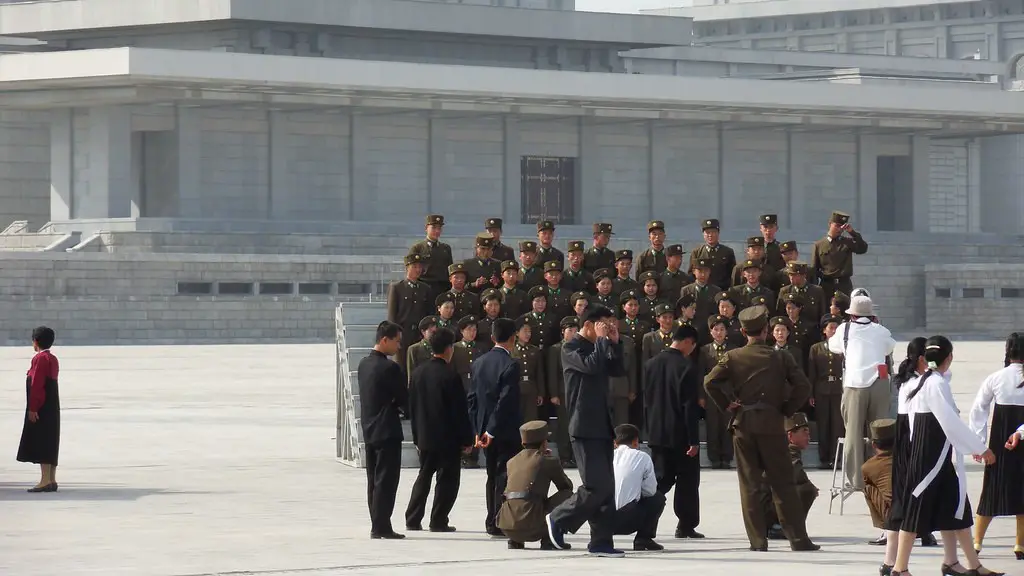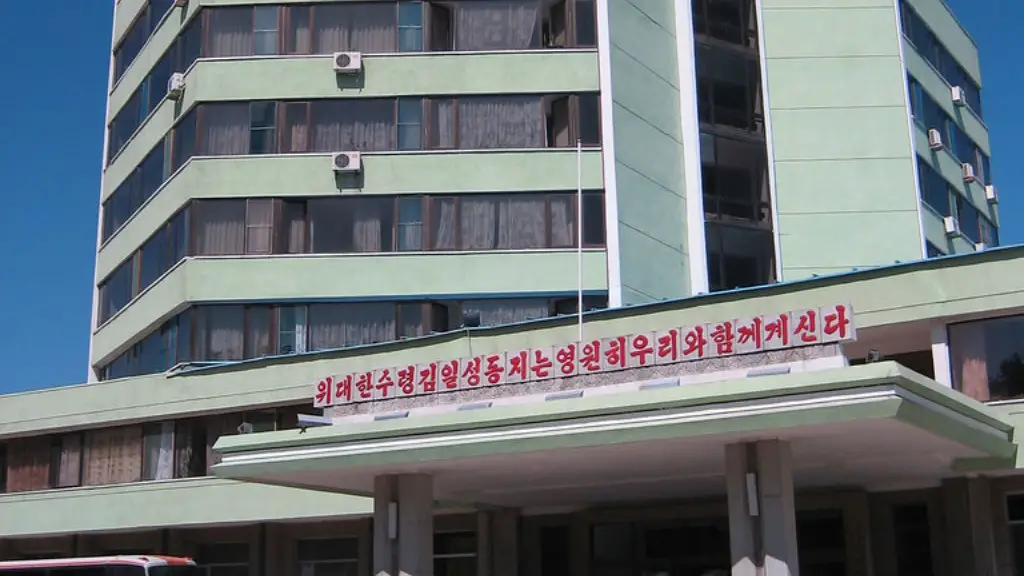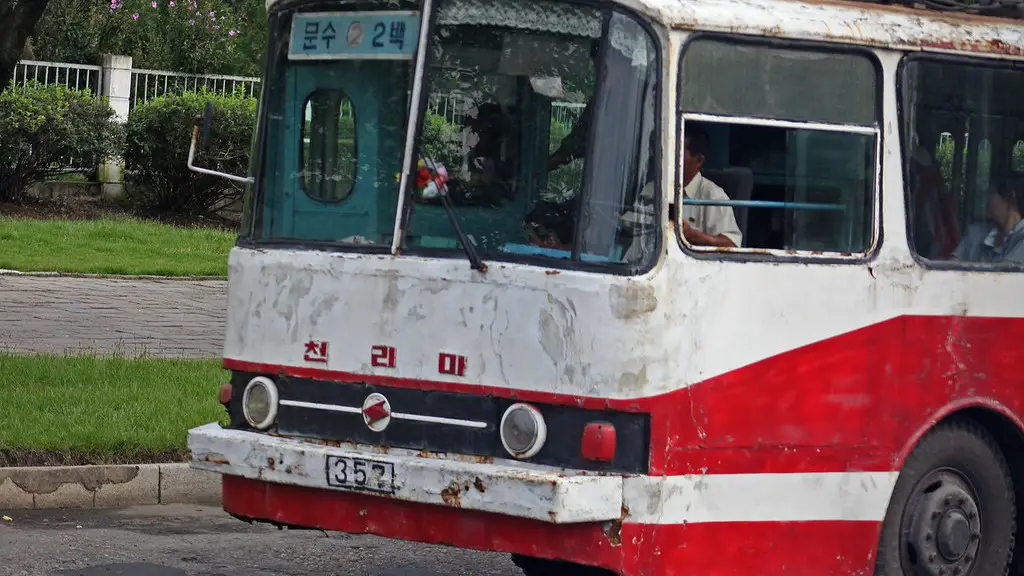North Korea is a nation that has been closely monitored by the world over the last couple of years. All eyes have been on the nation, ever since it began to pursue and develop a powerful nuclear weapon to defend itself. But what has North Korea done lately and what is the current state of their nuclear program?
In short, North Korea has continued to pursue the development of nuclear weapons and has done so with increased aggression. In recent years, the nation has tested several nuclear devices, as well as multiple ballistic missiles, and is thought to currently possess up to 30 nuclear weapons. It has also conducted a number of other tests of nuclear-capable missiles, including tests of both submarine-launched and land-based missiles. This has caused the international community to become increasingly worried about North Korea’s nuclear ambitions and the potential for a nuclear conflict.
At the same time, North Korea has also engaged in diplomatic initiatives with South Korea, Japan, the United States, and other nations in the region. The two Koreas have held a series of summits, and have also opened several civilian inter-Korea communication channels. Talks between the United States and North Korea have also been held, although progress has been slow and discussions have produced little in the way of concrete results. Most recently, North Korea has also engaged in nuclear talks with China and Russia, although these talks have yet to produce any tangible progress.
The United Nations Security Council has also imposed sanctions on North Korea, in an effort to try and curb the nation’s nuclear ambitions. These sanctions include restrictions on exports, imports, and even travel into and out of the country. Despite these measures, however, there is no evidence that North Korea has been deterred in its pursuit of nuclear weapons.
Experts have also been divided on how best to deal with the North Korean nuclear threat. Some argue that the only way to ensure the safety of the region is to collaborate with North Korea, while others believe that the only way to prevent the nation from obtaining a nuclear weapon is through a mixture of strong sanctions and diplomatic pressure. Additionally, some experts have suggested that some form of military intervention, such as an airstrike, may be necessary in order to deter North Korea from continuing their pursuit of nuclear weapons.
It is clear that the international community must come together to find a way to resolve the North Korean nuclear crisis. In the meantime, the world will continue to watch and wait to see what North Korea does next.
The Peace Talks
The peace talks between North Korea and South Korea have been ongoing for some time, and there has been a general improvement in relations between the two countries since the first summit was held in April 2018. The most recent summit, held in Pyongyang in September 2018, resulted in a series of agreements on denuclearization and inter-Korean cooperation. However, the main sticking point has been North Korea’s demands for the removal of US troops from South Korea, a demand which the US has not been willing to compromise on. Despite this, denuclearization talks are set to resume in 2019 and both Koreas have continued to pursue inter-Korean dialogue, with the two sides aiming to sign a final peace treaty.
The Sanctions
The UN Security Council has imposed a number of sanctions on North Korea in an effort to pressure the nation into giving up its nuclear ambitions. These sanctions target everything from imports and exports to travel, and even international shipping. Although the sanctions have been designed to be as comprehensive as possible, there have been reports that China and Russia have been helping North Korea to circumvent some of the restrictions by secretly transferring products and services to the country. This has made it difficult for the international community to accurately assess the effectiveness of the sanctions.
The International Community’s Response
The international community as a whole has adopted a policy of ‘strategic patience’ with North Korea, meaning that it is waiting for North Korea to take action rather than taking an active role in the situation. This has become increasingly difficult as North Korea has continued to test ballistic missiles and conducted a number of provocative acts, such as the firing of missiles over Japan. In spite of this, the United States has maintained that it is willing to talk with North Korea and is open to dialogue if the nation shows sincere effort in undertaking nuclear disarmament.
The Military Option
The military option is one of the most feared when it comes to dealing with North Korea. With the nation possessing an advanced nuclear weapons capability, the consequences of any military confrontation would be devastating. However, some experts agree that North Korea must be stopped and that a military response may be the only way to do so. The United States has made it clear that it is open to the possibility of military intervention, while South Korea has also taken steps to strengthen its military presence in the region.
The North Korean People
The North Korean people have suffered greatly over the years, with the nation facing extreme levels of deprivation, poverty and political oppression. It is estimated that millions of North Koreans are facing food shortages, with a lack of access to medical care and other vital services. Furthermore, the nation’s population is believed to be shrinking due to a low birth rate and the high rate of defections of those desperate to escape the harsh conditions in the country.
The Future of North Korea
The future of North Korea is uncertain at best. With tensions between the nation and its regional and international rivals still high, it is impossible to predict what the future holds for the nation and its nuclear program. The United States, South Korea, and other nations have sent signals that they are open to negotiations, but North Korea will ultimately decide the direction that the nation takes in terms of its nuclear weapons. Until that time, the world will continue to watch and wait with a great deal of apprehension.



